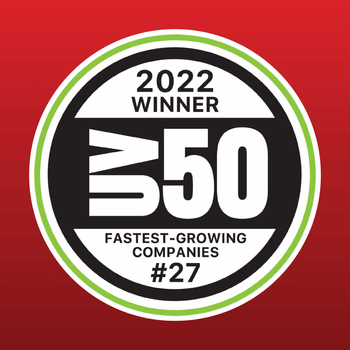by Caz Bevan • March 15, 2019
5 Tips for Creating Your Facebook PPC Marketing Strategy
As far as social media advertising is concerned, Facebook is where it’s at.
But with constant algorithm changes and Facebook Business updates, Facebook Ads can be a bit of a moving target in terms of developing a robust PPC marketing strategy.
That’s why placing your PPC advertising requirements in the right hands is essential. With the playing field in constant flux, it’s important to have specialists on your side who know exactly what they’re doing.
Working with a local search marketing and PPC agency or specialist is possibly the smartest decision you can make in terms of ensuring you get results.
That said, not all PPC companies are created equal. And you run the risk of losing tens of thousands of dollars on advertising if your Facebook PPC marketing strategy is poorly planned.
The Problem With PPC Today
For every campaign success story, there’s a company that’s wasted thousands of dollars on PPC.
Why are they getting such poor results?
Because PPC campaigns are often managed badly. Agencies and ad managers either mismanage their PPC accounts or they start on the wrong foot entirely.
Most advertisers make the same old mistakes:
- No strategic planning
- Poor targeting
- Incorrect audience
- Lack of testing and adjustment
Despite the algorithm changes that can make digital marketing such a tricky mistress, there are a few golden rules that can improve your PPC results. And, they’re not as complex as you might think.
5 Tips to Improve ROI for Your Facebook PPC Campaigns
So, it’s time to stop spending money on ads that aren’t giving you the ROI you want. Ditch bad PPC habits and start using your dollars wisely with these 5 tips.
1. Set Realistic Goals
It might sound obvious but it’s essential to set meaningful and realistic goals. There’s no point chasing vanity metrics, like x million followers. Instead, set goals that address your biggest challenges with Facebook.
Remember, unrealistic expectations lead to failed campaigns. Example goals might be:
Increasing Quality of Sales
Whether it’s quality or quantity, your PPC ad campaign needs to be designed around that specific goal. If it’s better quantity sales you want, try retargeting. For better quality sales, review your content offer in relation to your audience’s position in the sales funnel.
Adding Value
If adding value to existing customers is your goal, create ad campaigns that entertain, inform, or otherwise engage customers, to nurture them and keep them in the sales funnel. It’s about making Facebook the go-to source of information for your audience.
Better Recruiting
Recruitment is about targeting the right people for the job. With Facebook ads, you can target by age depending on whether you’re looking for entry-level or more senior applicants. You can also target based on location, current employer, job title, industry, and even office type.
2. Research Facebook Demographics
Facebook targeting is powerful. But get too specific and you risk excluding potential customers. If you’re not specific enough, you risk your ad being ignored.
From region to gender and age, target the audiences that are most likely to engage with your content. Do your research here; don’t assume that just because there are a plethora of social media platforms out there aimed at younger demographics, they don’t also use Facebook.
On Facebook, you have 1.15 billion people scrolling through their feeds every day. So you need to get a really good handle on who to reach and how.
Understand the latest Facebook demographics. According to Pew Social Media Update 2016, Facebook is dominated by women (core age group is 18-29). However, that said, there’s also a strong cohort of 65 and older users.
Beware of over-relying on targeting by interest. Your aim should be to create “custom audiences”, as these have better conversion rates. One way to do this is through video. Or try using intersections and exclusions to make your interest-targeted audiences more specific.
Review your current “buyer personas” with Facebook targeting in mind. Do they align? Extensive research and development in this stage of the process will pay dividends, so make sure this step is completed thoroughly.
3. Get Organized
Planning your content in advance means it’s more likely to be aligned with your brand, business goals, and audience needs. This gives you a much greater chance of engaging your audience and nurturing them along the path to purchase.
Your PPC ads should be designed within the context of overall business activity. Events, goals, company updates, new features, launches, and industry trends—they all need to be coordinated in order to maintain relevance and brand integrity.
If you’re not organized, your ad output won’t be either and your customers will keep on scrolling. Ask your search engine optimization and PPC agency for a full report on planned activity and feedback to them any points of interest from inside the business. This will ensure a more joined up PPC plan of action.
4. Proactively Engage With Users
Just because it’s an ad, doesn’t mean conversation and engagement should be put on the back burner. Monitor your ads for queries, comments and reactions. Make responding a priority. Not only does it show to your audience that their voices are being heard, but it helps your overall engagement stats too.
You can help drive Facebook engagement within your ads by actually asking people to engage. If boosting community engagement is one of your goals, tailor your ads accordingly and your results will improve.
Interacting with users in this way will also give you an accurate gauge of whether a campaign is resonating with them or not. If your agency is handling community engagement for you, go over this with them and make sure you understand what sort of responses your ads are getting.
5. Plan Campaigns Properly
PPC campaigns—like any other campaign—must be properly planned in order for them to be effective.
Your planning should cover specifics around target demographics and budget. Proper budget planning matters. Otherwise, in the world of Facebook PPC, you’re liable to spend a lot of money, fast, without the promise of a decent return.
Another thing I see often is ad managers who aren’t properly testing and analyzing active campaigns. Test your creative, test your messaging, test your landing page forms, and so on. You need to incorporate this into your PPC marketing strategy in order to discover what worked and what didn’t.
Conclusion
The world of PPC is complicated and it’s easy to get caught up in “this fool-proof targeting method” or “that Facebook ad template with guaranteed ROI.” The truth of the matter is there are no guarantees with PPC. But if you get the basics right, you won’t go far wrong.
As a quick recap:
- Set realistic goals and plan your PPC campaigns around them
- Research and study Facebook demographics
- Keep your content and ads scheduled and organized
- Proactively interact with users to encourage engagement
- Make sure your planning is meticulous, then monitor and review
Work with a company you trust and ask them what they’re doing to hit the 5 key points above. A great agency won’t have any problems providing answers. If you want to share what works for you, I’d love to hear from you in the comments below.




